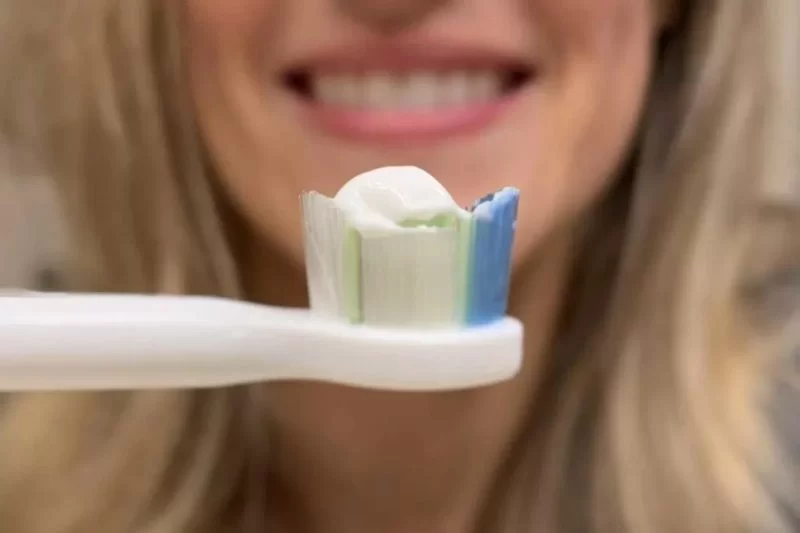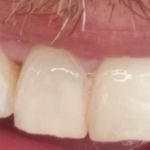
1 - Understanding Why Oral Hygiene Matters
1.1 - Oral Health and Whole-Body Wellness
When people ask themselves, “how to make my oral hygiene better,” they often think only about avoiding cavities. But dental care extends far beyond clean teeth. Poor oral hygiene has been linked to heart disease, diabetes complications, and chronic inflammation. Taking small daily steps to improve your dental health benefits not only your smile but your overall well-being.
1.2 - The Role of Daily Habits
Unlike one-time treatments, oral health is built on consistent, small habits. Brushing, flossing, and regular dental visits work together to create a strong defense against bacteria, plaque, and gum disease. Building these routines into your life makes long-term dental health sustainable and easier to maintain.
2 - Brushing Techniques That Truly Work
2.1 - Choosing the Right Toothbrush
Soft-bristled brushes are usually recommended, as they clean effectively without damaging enamel or irritating gums. Many dentists suggest electric toothbrushes for their consistency and ability to reach hidden areas. If your goal is learning how to make my oral hygiene better, investing in a quality toothbrush is a simple but powerful step.
2.2 - The Two-Minute Rule
Brushing for less than two minutes often leaves plaque behind. Use gentle circular motions and cover all tooth surfaces, including along the gumline. Imagine brushing each quadrant of your mouth for thirty seconds, ensuring no spot is overlooked.
3 - Flossing and Interdental Cleaning
3.1 - Why Flossing Matters
Even with excellent brushing, food particles and bacteria hide between teeth. Flossing once a day removes these particles and prevents gum inflammation. People who floss consistently have healthier gums and fresher breath, highlighting the importance of this often-overlooked habit.
3.2 - Alternatives for Sensitive Gums
For individuals who find flossing uncomfortable, water flossers or interdental brushes can be effective alternatives. These tools are especially helpful for people with braces, bridges, or sensitive gum tissue.
4 - The Role of Diet in Oral Hygiene
4.1 - Foods That Support Strong Teeth
Calcium-rich foods such as yogurt, cheese, and leafy greens strengthen enamel. Crunchy vegetables like carrots and celery naturally scrub teeth and stimulate saliva flow, which helps wash away bacteria. Including these in your meals is a proactive way to answer the question of how to make my oral hygiene better through nutrition.
4.2 - What to Limit for Better Dental Health
Sugary drinks, sticky candies, and frequent snacking increase the risk of cavities. Acidic beverages such as soda and citrus juice erode enamel over time. Moderation and rinsing your mouth with water afterward can reduce their harmful effects.
5 - Professional Dental Care and Checkups
5.1 - Why Regular Visits Matter
Dentists can detect issues before they become painful or costly to treat. Professional cleanings remove tartar buildup that daily brushing cannot. Scheduling checkups every six months is one of the most effective ways to keep oral health on track.
5.2 - Real-Life Story
One patient shared that after skipping dental visits for three years, a routine checkup revealed early gum disease. Thankfully, treatment and lifestyle adjustments reversed the damage. This story illustrates how preventive care saves both health and money.
6 - Lifestyle Choices That Influence Oral Hygiene
6.1 - Tobacco and Alcohol Use
Smoking and frequent alcohol consumption increase the risk of gum disease, oral cancer, and staining. Reducing or quitting these habits dramatically improves oral hygiene and overall health.
6.2 - Managing Stress
Stress often leads to teeth grinding or jaw clenching. This can wear down enamel and cause jaw pain. Stress management techniques like exercise, meditation, or simply better sleep contribute indirectly to improved dental health.
7 - Expert Guidance and Family Dentistry Online Recommendations
Improving oral hygiene doesn’t have to be overwhelming. By combining consistent daily habits with professional guidance, anyone can achieve healthier teeth and gums. For personalized advice, trusted services, and product recommendations tailored to your needs, Family Dentistry Online provides expert resources that make better oral hygiene accessible to everyone.







 Maui Whitening Orlando4.0 (32 review)
Maui Whitening Orlando4.0 (32 review) Bloomington Southside Dental Care3.0 (26 review)
Bloomington Southside Dental Care3.0 (26 review) Christiana Dental Center4.0 (650 review)
Christiana Dental Center4.0 (650 review) Carolina Dental Arts - New Bern Ave4.0 (152 review)
Carolina Dental Arts - New Bern Ave4.0 (152 review) Equitas Health Short North Medical Center3.0 (96 review)
Equitas Health Short North Medical Center3.0 (96 review) Prosthodontics of Madison - Kendra Schaefer, DMD & Christine Roenitz, DMD4.0 (25 review)
Prosthodontics of Madison - Kendra Schaefer, DMD & Christine Roenitz, DMD4.0 (25 review) The Importance of Oral Health Education During Pregnancy for a Healthy Pregnancy
The Importance of Oral Health Education During Pregnancy for a Healthy Pregnancy Best Tips for Brushing Your Teeth Properly for Healthy Gums: Essential Techniques for Oral Health
Best Tips for Brushing Your Teeth Properly for Healthy Gums: Essential Techniques for Oral Health Why Skipping Dental Checkups Can Lead to Bigger Oral Health Problems
Why Skipping Dental Checkups Can Lead to Bigger Oral Health Problems Advantages of Porcelain Dental Restorations
Advantages of Porcelain Dental Restorations How Can Diabetes Cause Tooth and Gum Problems? Preventing and Managing Oral Health Issues
How Can Diabetes Cause Tooth and Gum Problems? Preventing and Managing Oral Health Issues Healthy Habits for Promoting Good Oral Health and Hygiene: Tips for a Healthy Smile
Healthy Habits for Promoting Good Oral Health and Hygiene: Tips for a Healthy Smile